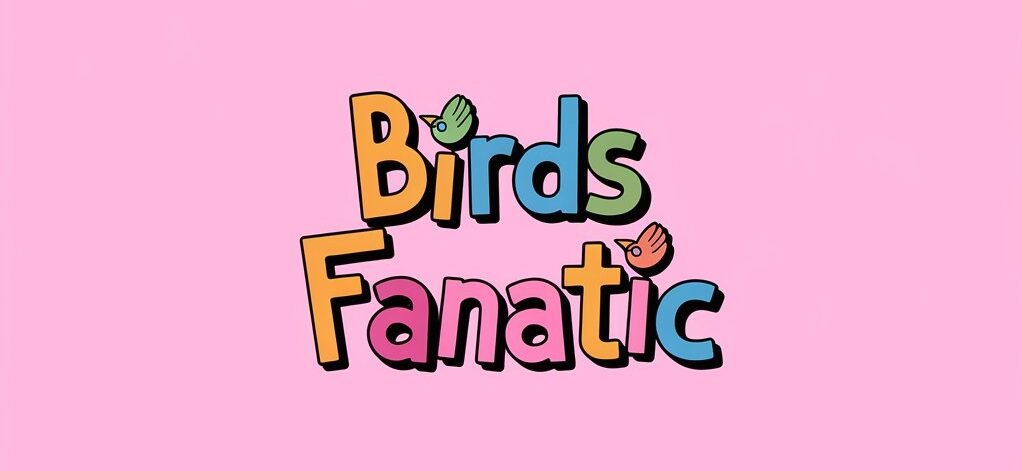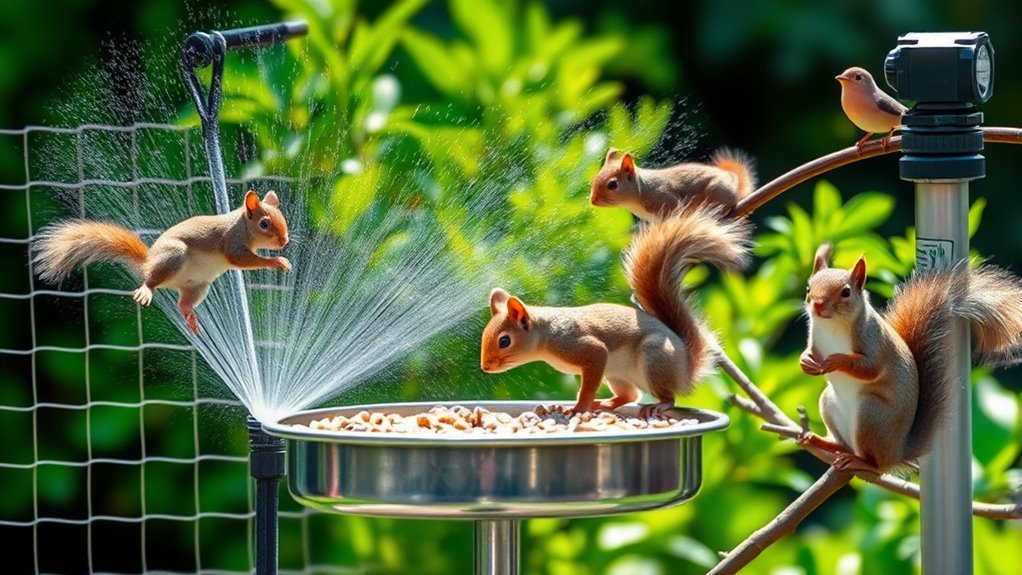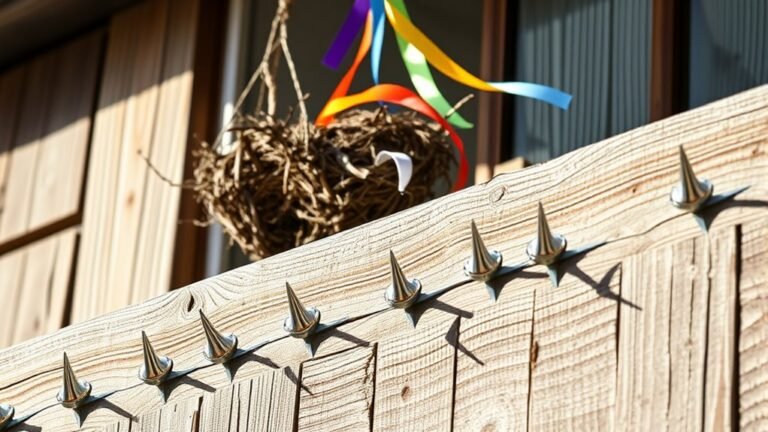Tips for Preventing Squirrels From Raiding Your Bird Feeder
Squirrels can be a nuisance when they steal from your bird feeder. Many bird enthusiasts share this frustration. However, you can take steps to keep squirrels away and protect your feeder. Simple changes and the right equipment can create a safer feeding space for birds. Ready to learn how? Here are some effective tips to prevent squirrels from raiding your bird feeder and improve your birdwatching experience.
Key Takeaways
- Use squirrel-proof feeders designed with weight-sensitive features that allow birds but restrict heavier animals.
- Install baffles above and around feeders, positioned at least five feet off the ground.
- Place feeders 5 to 6 feet high and away from trees or buildings to prevent jump access.
- Choose birdseed types that are less appealing to squirrels, like safflower, and avoid corn-rich mixes.
- Regularly clean feeding areas and use natural repellents like cayenne pepper to deter squirrels.
Choose Squirrel-Proof Feeders
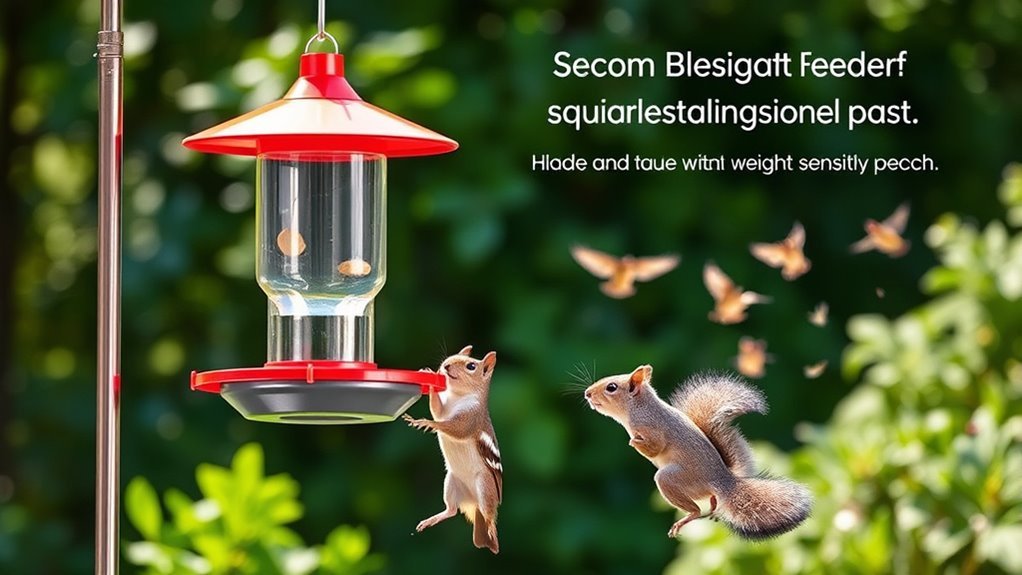
Choosing squirrel-proof feeders helps protect your bird seed from squirrels.
When picking a feeder, look at designs that block squirrels while allowing birds to feed. Seek models with weight-sensitive features that shut access when heavier animals try to eat.
Use strong materials like metal or thick plastic to resist squirrels' chewing and last longer. Also, select feeders that raise food off the ground, making it harder for squirrels to reach.
Use Baffle Devices
Baffle devices help prevent squirrels from stealing birdseed. They create a barrier around your feeders.
Choose between dome or post-mounted baffles for the best results. Install the baffle at least five feet above the ground and ensure it isn't reachable from trees or buildings. This setup increases its effectiveness.
Make sure the baffle is sturdy and secure. A loose baffle might move or fall during strong winds.
Following these installation tips will help you protect your birdseed and create a friendly space for birds. Enjoy watching your feathered friends without the distraction of squirrels!
Install Feeders at the Right Height
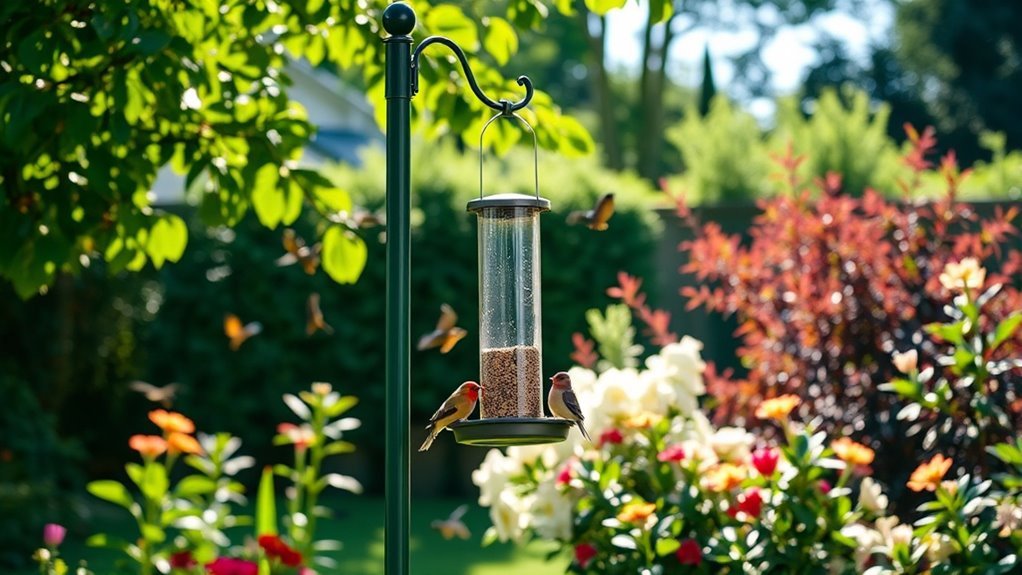
To keep squirrels away from your bird feeders, install them at the right height. The best height is 5 to 6 feet above the ground. This height makes it easy for birds to feed while discouraging squirrels.
Here are some tips for placing your bird feeders effectively:
- Place feeders away from trees or buildings that squirrels can jump from.
- Use a pole that's 8 to 10 feet tall for extra protection.
- Clear the area around the feeder of any objects that squirrels could use to reach it.
- Observe bird activity regularly and change the feeder height if necessary.
Opt for Squirrel-Resistant Feed
To attract a variety of birds, choose squirrel-resistant feed to limit squirrel visits.
Some seeds, like safflower seeds, are less appealing to squirrels but nutritious for birds.
Avoid seed mixes with high amounts of millet or corn, as these may attract squirrels.
Create a Squirrel-Repellent Environment
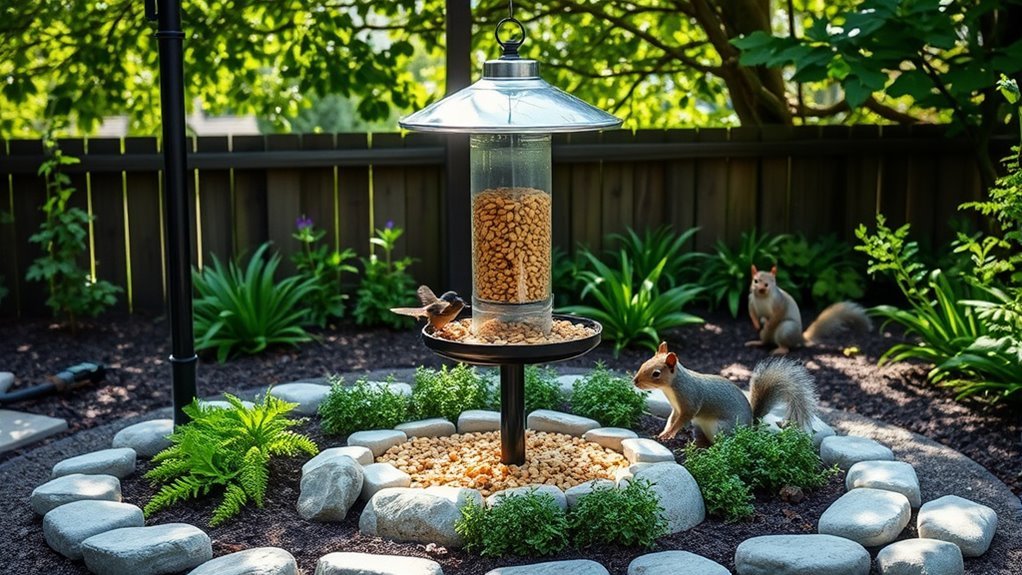
Creating a squirrel-repellent environment at your bird feeders is simple and effective.
With a few thoughtful changes to your garden, you can keep squirrels away while still inviting birds. Here are some straightforward strategies:
- Plant shrubs: Use dense bushes around your feeders to block squirrels.
- Use barriers: Set up fencing or nets to prevent squirrel access.
- Position feeders: Hang feeders far from trees or fences to stop squirrels from jumping to them.
- Diversify vegetation: Choose plants that squirrels dislike to steer them away from your feeding area.
These tips will help you maintain a squirrel-free space, making it easier for your feathered friends to enjoy their meals.
Place Feeders Strategically
Placing feeders in strategic locations helps reduce squirrel interference and supports bird feeding. Start by selecting spots away from trees, fences, or any structures that squirrels can jump from.
Position feeders at least five to six feet off the ground. This height makes it harder for squirrels to reach them. You can also hang feeders from wires that sway to discourage squirrels from jumping.
Grouping feeders together can create a better experience for birds and make it trickier for squirrels. Thoughtful placement fosters a welcoming environment for birds while keeping feeding areas calm.
Utilize Special Feeding Techniques
If you want to keep squirrels away while feeding birds, use these effective strategies:
- Choose squirrel-proof feeders. These feeders have weight-sensitive mechanisms that only allow birds to access the food.
- Place feeding platforms on tall poles. This makes it hard for squirrels to reach the food.
- Offer mixed seeds in small amounts more often. This prevents squirrels from hoarding all the food.
- Install baffle systems. These block squirrel access from below.
Maintain a Clean Feeding Area
Keeping your bird feeder full is important to attract birds. However, maintaining a clean feeding area is equally important to prevent squirrels.
Regularly cleaning up spilled seeds and hulls improves the look of your space and keeps it clean. Leftover food attracts squirrels, so keeping the area tidy helps reduce their visits. A clean feeding space creates a healthy environment for birds and other wildlife.
Monitor and Adjust Regularly
To keep squirrels away from your bird feeder, monitor and adjust its placement regularly. Observe the feeding patterns of both birds and squirrels. This will help you understand their habits.
Here are some simple steps to follow:
- Note which birds visit your feeder the most.
- Watch when squirrels come near the feeder.
- Change the feeder's height or location based on what you find.
- Try different types of bird feed to attract specific species.
Consider Squirrel Deterrents
To keep squirrels away from your bird feeders, consider these simple deterrents. Use natural repellents like cayenne pepper or vinegar. Squirrels dislike the strong scents. You can sprinkle cayenne pepper around the feeder or soak cotton balls in vinegar and place them close by.
Scent barriers, such as citrus peels or commercial repellent sprays, also create an unwelcoming space for squirrels.
While you protect your bird feed, remember to have compassion for squirrels. This approach encourages a balanced garden environment where birds can eat without interruptions.
Try these options to enjoy a squirrel-friendly garden while keeping your feathered friends safe.
Frequently Asked Questions
What Types of Birds Are Most Likely to Be Deterred by Squirrels?
Certain bird species, such as smaller songbirds, often avoid feeders when squirrels are present. These birds prefer high perches and specific types of feeders. To keep them comfortable and encourage their presence, provide suitable feeding options and placements away from squirrels. This way, you can create a friendly environment for all birds.
How Often Should I Refill My Bird Feeder to Attract More Birds?
To attract more birds, refill your bird feeder regularly. Aim to do this every few days. Keeping a consistent feeding schedule creates a safe and welcoming space for birds, encouraging them to visit often. Regular refills ensure the feeder is always ready, increasing the chances of bird sightings in your yard. Enjoy watching the birds come and go!
Can Squirrels Injure Themselves on Squirrel-Proof Feeders?
Squirrels can get injured on poorly designed feeders. However, many squirrel-proof feeder designs reduce these risks. They keep squirrels safe while deterring them from accessing bird food. This way, you can enjoy watching birds in your garden without worrying about squirrel injuries.
Do Certain Birdseed Blends Attract Squirrels More Than Others?
Certain types of birdseed can attract squirrels because of their feeding habits. Blends with corn or sunflower seeds tend to draw them in more. On the other hand, birdseed mixtures that focus on specific bird species may help keep squirrels away. Choose your birdseed carefully for a better feeding experience without unwanted visitors!
Are There Specific Times of Year When Squirrels Are More Problematic?
Squirrels are more active and problematic in spring and fall. During these seasons, there is more food available, which makes them more aggressive in searching for food. You might notice them scavenging and raiding for sustenance more during these times.

Hello, I’m Amelia White, the founder of birdsfanatic.com. As a lifelong bird enthusiast and spiritual seeker, I’ve always been fascinated by the mystical connections between birds and the human experience. On this site, I share my knowledge and insights into the symbolic meanings and spiritual significance of various bird species, exploring their roles in mythology, folklore, and cultural traditions. Join me on this journey into the world of birds, where we’ll discover the hidden wisdom and guidance that these magnificent creatures have to offer.
